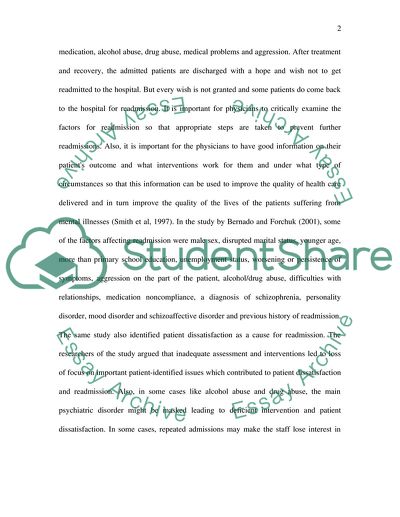Cite this document
(“Literature Review for Research Proposal: Patient satisfaction as an Essay”, n.d.)
Retrieved from https://studentshare.org/miscellaneous/1554990-literature-review-for-research-proposal-patient-satisfaction-as-an-indicator-that-impacts-inpatient-psychiatric-readmissions-within-1-year-post-discharge-for-our-unit
Retrieved from https://studentshare.org/miscellaneous/1554990-literature-review-for-research-proposal-patient-satisfaction-as-an-indicator-that-impacts-inpatient-psychiatric-readmissions-within-1-year-post-discharge-for-our-unit
(Literature Review for Research Proposal: Patient Satisfaction As an Essay)
https://studentshare.org/miscellaneous/1554990-literature-review-for-research-proposal-patient-satisfaction-as-an-indicator-that-impacts-inpatient-psychiatric-readmissions-within-1-year-post-discharge-for-our-unit.
https://studentshare.org/miscellaneous/1554990-literature-review-for-research-proposal-patient-satisfaction-as-an-indicator-that-impacts-inpatient-psychiatric-readmissions-within-1-year-post-discharge-for-our-unit.
“Literature Review for Research Proposal: Patient Satisfaction As an Essay”, n.d. https://studentshare.org/miscellaneous/1554990-literature-review-for-research-proposal-patient-satisfaction-as-an-indicator-that-impacts-inpatient-psychiatric-readmissions-within-1-year-post-discharge-for-our-unit.


